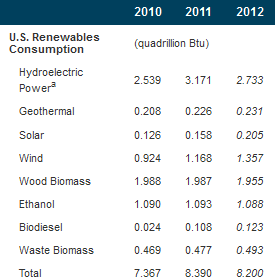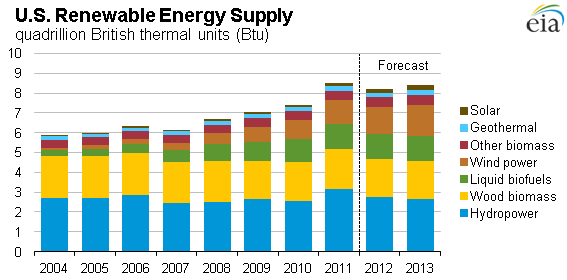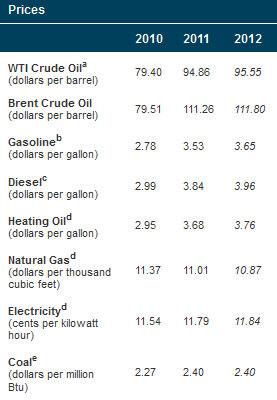Hydropower, which is, for those of you who don’t know, the use of moving water to generate electricity, is currently the largest source of renewable-generate electricity in the United States. Hydropower accounted for 63% of all renewable-generated energy in 2011, a 13.9% increase over the previous year. But could hydropower be on the decline? Experts say yes.
Hydropower use has fallen by 0.4 quadrillion Btu this year, representing a 13.9% decrease compared to 2011.
However, the decline in hydropower use is not necessarily a bad thing. The primary reason for the drop in usage is due to the growth of other renewable energy forms, such as wind power and geothermal electricity.
The History of Hydropower in the United States
Hydropower is nothing new to the world, with the first hydroelectric power plant being built in 1879 at Niagara Falls. And just three years later, in 1882, the first hydroelectric power plant was constructed and began operation in the United States in Appleton, Wisconsin.
Since this day, hydropower has played a small, yet important role in the overall energy production in the U.S. and remains one of the cheapest ways to produce electricity.
The Current State of Electricity Prices in the United States
The United States Energy Information Association (EIA) reported average residential electricity prices across the U.S. at 12.10 cents per kilowatt hour in September 2012, the last month they released data. This number is expected to drop slightly once the numbers for October 2012 are calculated. And the average residential electricity price for 2012 is projected at 11.84 cents per kilowatthour, a 0.4% increase compared to 2011.
This winter, with temperatures expected to be 13% colder than last year, EIA expects U.S. electricity prices to rise slightly compared to 2011, 5%.
Of course, all of the numbers above are national averages and can vary depending on where you live.
To learn more, please contact CQI Associates by calling 410-740-0667 or visit CQIAssociates.com today!
CQI Associates has saved our public and private commercial clients well over $1,500,000,000 based on our energy and environmental program and project saving recommendations.
You can also follow us on Facebook, Twitter, LikedIn, and Google+.



